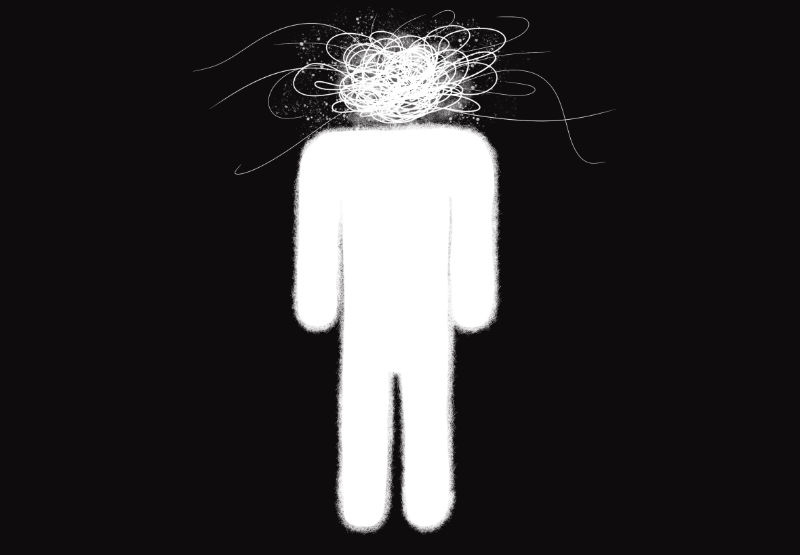What I’ve Been Reading: December 3, 2024 Edition
I was going to start this post with a different preamble, but the more I read it over, the more I realized I was just going to create rifts or deepen the ones that already exist. My faith in others is already at a low point, and while there’s a part of me that wants to stomp it to dust and kick it away, there’s another part of me that wants to keep it safe, where it can’t be ruined any further—high on a shelf where it can sit by itself until it grows with the first real evidence of people changing for the better.
I’ll say this much: I’m tired of the men in my life disappointing me—breaking their promises, never following through, never looking at what changes they need to make within themselves, never attempting to make amends, overlooking or ignoring me, failing to appreciate what I’ve given until I’ve distanced myself, and betraying me. Reading these articles helped me remember why these things keep happening—and it will lessen the sting when they invariably happen again.
Maybe you’re in the same position, Dear Reader. If so, perhaps these articles can help you find some strength for dealing with the takers and fakers in your life. Or maybe you’re a man actively working on (or want to work on) understanding why your life is the way it is and taking responsibility to do right by the people around you. If that’s the case, keep going, no matter how hard or endless the process might feel. You’re making a difference in the world because you’re starting with yourself.
But if you’re the kind of person I described earlier… well, maybe it’s time you followed the example of the man I referenced before you.
Men and the Hidden Costs of Overthinking
Jett Stone, Ph.D. (Psychology Today)
If men stopped ruminating, they could spend that precious time taking action to make things happen instead of just wishing they would.
I love how Stone opens his article with a Mark Twain quote: “I’ve lived through some terrible things in my life, some of which actually happened.” If that isn’t a pithy summary of overthinking, I don’t know what is.
I’m a lifelong ruminator, so I’m no stranger to endlessly wondering about what-ifs and whys. But men approach rumination differently. As a woman, I’m free to express that I’m worried and I can’t stop thinking about something. Someone, likely a man, will tell me my simple female brain shouldn’t be dwelling on things… while he probably goes back to agonizing over something that happened in the third grade. He’ll stamp down these thoughts and feelings, telling himself that they’re not a big deal and he should get back to the matter of living, whatever that means for him.
But when you ask men to slow down, identify themes that trigger their overthinking habit, and unravel the nuanced feelings (constructively engage instead of experientially avoid), they reveal loneliness in marriage, envy toward work colleagues, the hopelessness of ever meeting a boss’s expectations, or shame at perceived failures to be useful or needed. This is one reason why starting with overthinking is a practical launch point for engaging men emotionally.
Obviously, it will take more than a single article to tackle overthinking, but it’s a good start as any.
Why So Many Men Struggle with Their Emotions
Assael Romanelli, Ph.D. (Psychology Today)
If more men were in touch with their emotions, they might better understand how their actions—or lack thereof—impact others.
This one stood out to me because it references Terrence Real’s I Don’t Want to Talk About It: Overcoming the Secret Legacy of Male Depression. I read the book earlier this year and it gave me an incredible, though at times horrifying, look into how depression manifests in men. It opened my eyes to the various ways men have been taught to handle depression—mostly by shoving it down into a pit where it festers and grows into destructive habits, self-sabotage, and abuse toward others. While it helped me understand why some men in my life act they way they do, it didn’t make it easier to accept that they still act that way. It becomes even harder when I sense that these men want closer relationships with those around them, yet they keep hitting a brick wall.
But at least there’s an explanation. It’s a relief that men like Romanelli have done the work and are teaching other men how to break down their own brick walls.
Whatever Happened to the Noble Art of the Manly Weep
Sandra Newman (Aeon)
The world would be a better place if men felt free to cry again.
I first read this article some time ago, but revisited it while brainstorming cultural differences for my fantasy realm, Eximirene. With their world mostly rooted in medieval customs, as well as possessing a deep understanding that magick flows freely through emotions, Eximireans view public weeping as a powerful expression.
In our very real world, we had a similar sentiment about crying. In classical works, men weep for fallen comrades, over missing their lady loves, or during religious worship. The idea that crying is something only women or overly sensitive people should do is a fairly recent development.
But somewhere along the way, society decided men had wept enough for the species and should bottle up all their emotions, no matter how much damage it did to them them—and to the rest of society.
I’ve noticed that men from my generation (Millennials) are more likely to express themselves or at least wish they could feel free to do so. Maybe it won’t start a movement, but at least people are talking. That gives me a little hope.
